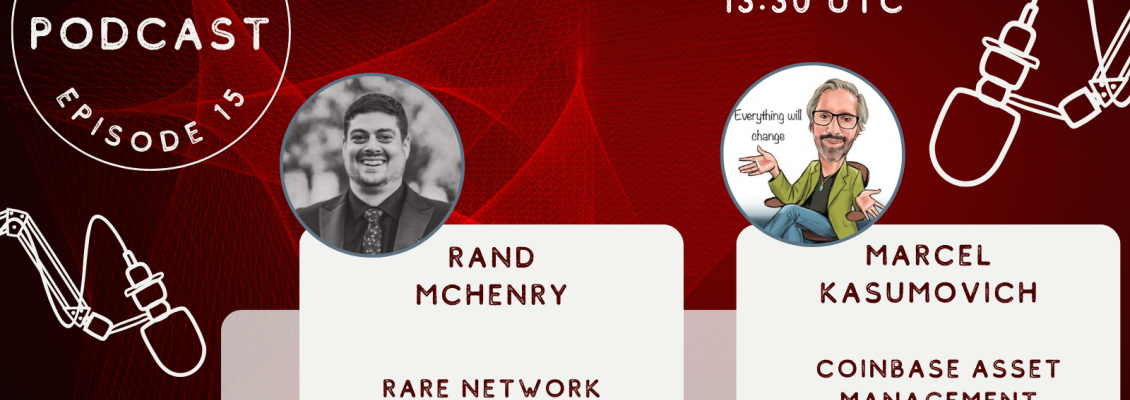
Crypto asset management and background
Crypto asset management refers to the management and investment of digital assets within the cryptocurrency ecosystem. It involves applying traditional investment tools and strategies to the crypto market in order to build institutional-grade products for investors. Marcel, the deputy CIO of Coinbase Asset Management, provides insights into this field during the That's Rare Podcast.
Marcel's background is diverse and impressive, starting with his passion for mathematics. However, he realized that pure mathematics was not his calling and shifted his focus to finance. He began his career at the Bank of Canada, where he gained valuable experience in the financial industry. He then moved on to work at Goldman Sachs, where he further honed his skills and expanded his network.
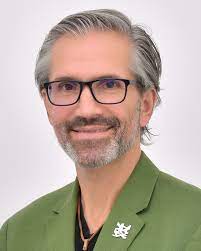
The most significant turning point in Marcel's career came when he joined Soros Fund Management. Working closely with George Soros himself, Marcel experienced a period of intense learning and growth. He was exposed to major global events, such as the China revaluation, financial crisis, and peak oil, which provided him with invaluable insights into the intricacies of the financial world.
During this time, Marcel also co-founded two successful macro hedge funds, which raised significant assets and delivered alpha to investors. His expertise in macro investing and his ability to navigate complex market conditions contributed to his success.
In 2021, Marcel joined OneRiver Digital, marking his entry into the world of crypto asset management. His interest in cryptocurrencies began earlier when he stumbled upon an article on crypto while working as a visiting scholar at the IMF. Intrigued by the asset class, he started delving deeper into it and eventually made it a dominant portion of his portfolio.
Marcel approaches crypto asset management from a macro perspective, leveraging his background in finance and his experience in traditional markets. However, he acknowledges the importance of a diverse team with expertise in various aspects of the crypto industry. This eclectic team at Coinbase Asset Management brings together different perspectives and skills to deliver innovative investment products.
The podcast highlights the exciting work being done at Coinbase Asset Management, with Marcel describing their efforts as building a "Ferrari" during the crypto winter. They have developed various investment strategies, including trend, credit, index, and option strategies, all tied to digital rails. Marcel and his team are ready to drive this "Ferrari" and provide investors with compelling opportunities in the crypto market.
Overall, Marcel's background and experience in traditional finance, coupled with his foray into crypto asset management, position him as a valuable contributor to the field. His journey exemplifies the growing importance of crypto assets and the need for skilled professionals who can navigate this evolving landscape.
Building infrastructure for DeFi
Building infrastructure for DeFi, or decentralized finance, is a crucial step in the development and adoption of this emerging financial ecosystem. DeFi aims to provide financial services and products on a decentralized network, without the need for intermediaries such as banks or traditional financial institutions. This podcast provides insights into the process of building infrastructure for DeFi and the principles that guide this endeavor.
The podcast begins by highlighting the importance of learning through mistakes and overcoming the fear of failure. Marcel emphasizes that the current education system and societal expectations often discourage failure and prioritize academic achievements. However, he argues that learning from mistakes and admitting them is essential for growth and development. This mindset is crucial in the context of building infrastructure for DeFi, as it requires experimentation and innovation.
We then shift to discuss the institutional level of building infrastructure for DeFi. Marcel mentions that they determined that the infrastructure was not ready initially. However, during a period referred to as "crypto winter," when the cryptocurrency market experienced a significant downturn, the team saw an opportunity to build. This highlights the importance of timing and seizing opportunities in the crypto market.
Marcel mentions that they took the lead in communicating and ensuring that people knew they were still active in the field. They also focused on building a team of portfolio managers and developing infrastructure for both credit and trend analysis. Building infrastructure for DeFi is not a simple task, as it requires a different approach to risk management and technological development.
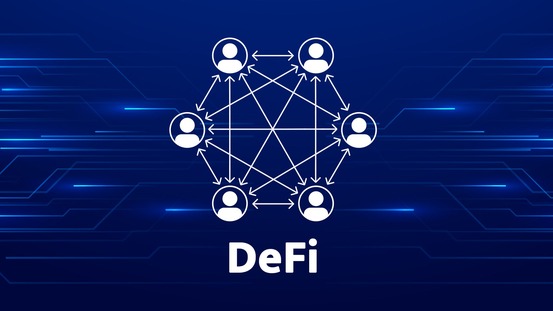
The podcast then delves into the specific principles that guided the team in building infrastructure for DeFi. One principle is to work with regulators and establish a permission layer that complies with regulatory standards. This approach seeks to give regulators control over the permission layer while allowing for innovation and development on the public blockchain. This demonstrates the importance of collaboration between the DeFi industry and regulators to ensure compliance and long-term sustainability.
Another principle mentioned is the balance between privacy and anonymity. While privacy is paramount, anonymity is deemed a non-starter for scaling into the regulatory mainstream. This highlights the challenges of maintaining privacy in a digital environment while adhering to regulatory requirements. Striking a balance between privacy and regulatory compliance is crucial for the success and adoption of DeFi.
The podcast transcript concludes by briefly mentioning the team's collaboration with Coinbase, a prominent cryptocurrency exchange. The details of this collaboration are not elaborated upon in the transcript, but it suggests the importance of partnerships and collaborations in building infrastructure for DeFi.
In conclusion, building infrastructure for DeFi is a complex and multifaceted process that requires a deep understanding of technological, regulatory, and market dynamics. This podcast transcript provides insights into the principles and considerations involved in this endeavor. It emphasizes the importance of continuous learning, collaboration with regulators, and striking a balance between privacy and regulatory compliance. Building infrastructure for DeFi is crucial for the growth and adoption of this emerging financial ecosystem, and it requires skilled professionals who can bridge the gap between traditional finance and the world of crypto assets.
Opportunity is subtle, Coinbase acquisition
One of the key themes discussed during the That's Rare Podcast is the concept that "opportunity is subtle." Marcel highlights the misconception that opportunities will present themselves in an obvious and overt manner, when in reality, they often come in the form of a gentle knock at the door. The speaker emphasizes that individuals must be engaged, work hard, and be open to recognizing and seizing these subtle opportunities.
The podcast also touches on the acquisition of the One River Digital by Coinbase, a well-known and respected platform in the cryptocurrency space. Marcel expresses their excitement and gratitude for being acquired by Coinbase, stating that they have been a client of the platform for a significant period of time. They emphasize that Coinbase is an excellent platform to build upon and that they couldn't ask for a better foundation for their project, referred to as "Project Diamond."
The discussion then moves on to the integration of a layer two solution, referred to as "base," into Project Diamond. Marcel describes base's successful rollout during the on-chain summer and explains that integrating it into their project provides a complete stack for an on-chain marketplace. They highlight their leadership position in areas such as account abstraction and ZK Rollups, emphasizing the scalability and low cost of their platform, which they believe can cater to the needs of eight billion people.
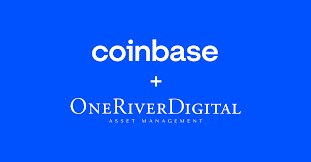
Marcel mentions their regulatory partner in Abu Dhabi, stating that they have received preliminary regulatory approval within the Abu Dhabi Global Market (ADGM). This partnership has opened up many doors for their project and has contributed to the development of their complete stack. The speaker expresses excitement about the potential of their project and its ability to scale globally.
The conversation then shifts to the role of USTC (United States Trade Control) in the project. The speaker acknowledges that USTC is a part of the project and highlights its importance in ensuring regulatory compliance. They express a desire to dive deeper into the regulatory scene in Abu Dhabi and Dubai, emphasizing the openness and excitement in these regions and their potential to set an example for the rest of the world.
The podcast sheds light on the subtle nature of opportunities and the importance of recognizing and seizing them. It also highlights the significance of the Coinbase acquisition and the integration of base into Project Diamond, providing a complete stack for an on-chain marketplace. The speaker's excitement about their regulatory partner in Abu Dhabi and the potential of their project to scale globally is evident. Overall, this transcript provides valuable insights into the principles and considerations involved in building infrastructure for DeFi.
Tokenizing assets for regulatory approval
Tokenizing assets for regulatory approval is a complex process that requires careful planning and collaboration. This podcast reveals the steps involved in finalizing regulatory approval for tokenized assets and emphasizes the importance of regulatory partnerships. Mr. Kasumovich acknowledges that every step taken in the tokenization process will be subject to regulatory approval, highlighting the need for a close working relationship between regulators and industry players.
We discusses the flexibility and versatility of tokenization, particularly in the context of digitally native assets. Marcel mentions that they can choose to tokenize different types of assets based on their preferences, such as intellectual property, food security, or debt instruments. This flexibility allows for customization and tailoring of tokenized assets to meet specific needs and objectives.
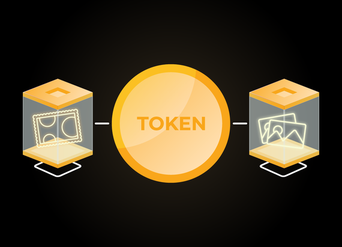
Furthermore, we touch upon the concept of fungibility in tokenization. Marcel explains that while assets can be tokenized both on-chain and off-chain, they can still be made fungible by ensuring they have the same Q-sips and legal rights. This means that tokenized assets can be traded interchangeably, providing liquidity and ease of transfer.
Drawing parallels between the tokenization of assets and the evolution of ETFs and mutual funds. It suggests that tokenization has the potential to revolutionize the financial industry in a similar way, offering improved characteristics and benefits compared to traditional assets. The speaker mentions that tokenizing existing assets may involve duplicating costs, whereas issuing tokens on-chain for higher velocity assets can help in understanding how digital rails work.
The transcript highlights the importance of starting with prototypes and learning from them. The speaker mentions the example of a discount note, a short-term debt instrument that trades without a coupon. This prototype allows for a high velocity of transactions and provides valuable data and insights into the functioning of tokenized assets. The involvement of Jay Clayton, the former SEC chair, as an advisor adds credibility and expertise to the project.
